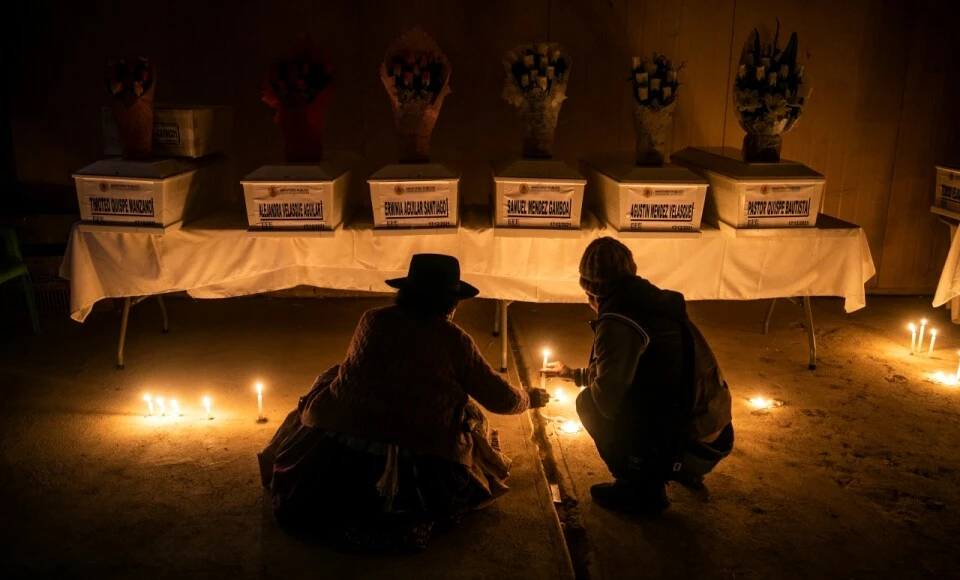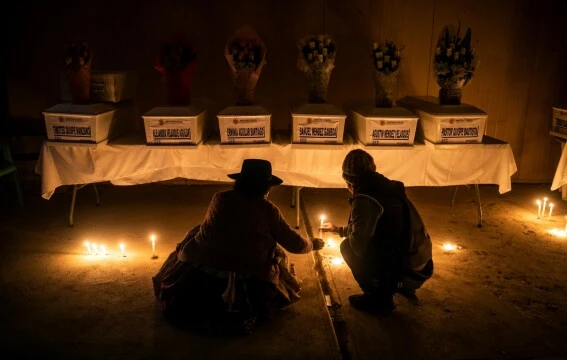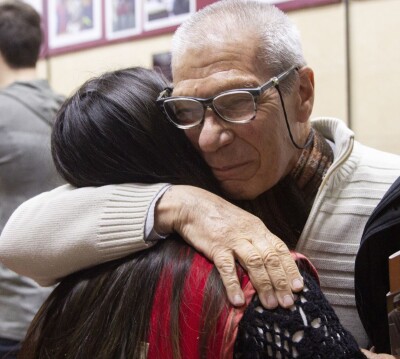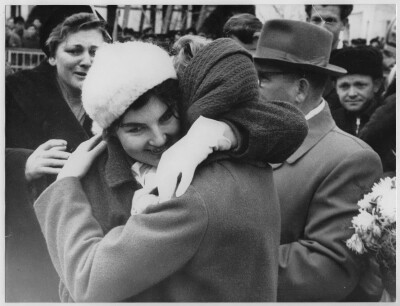International Day of the Disappeared: Remembering the missing
30 August 2024


When conflict and disasters affect communities, many people lose contact with their families. Long after violence and disasters end, those whose loved ones have gone missing continue to live with the pain of the unknown. It is like an open wound that will not heal.
On 30 August every year, we mark the International Day of the Disappeared. This day is an opportunity to stand in solidarity with the families of missing persons and to remember their missing relatives. We want families to know that they are not alone, that their loved ones are not forgotten, and that the Red Cross Red Crescent Movement continues to work to help them find the answers and support they deserve.
Hundreds of thousands of people worldwide are missing due to armed conflict, violence, disasters, and in migration contexts. Enforced disappearance crime – where missing people may have been abducted, arrested, detained, and even killed – is now a global problem. The consequences are far-reaching, devastating immediate families and impacting communities and societies.
The Movement’s Family Links Network helps to restore contact between thousands of family members, each year. This is a unique network connecting across 191 National Societies who are part of the International Federation of Red Cross and Red Crescent Societies (IFRC), and the International Committee of the Red Cross (ICRC).

Juan Carlos, at the Argentinian Red Cross office in 2023. Last year, our RFL team, in coordination with the Argentinian Red Cross, successfully established a connection between long-lost cousins Norma Rosales-Anderson and Juan Carlos after more than 40 years.
On average, every minute the Network helps four families separated by conflict, violence, migration, and disasters call each other; every hour, it helps clarify the fate and whereabouts of two missing persons, and every day, it assists in reuniting 21 people with their families.
It is more than a tracing service. We relay messages between where there are no other means of communication. We initiate health and welfare checks for families who have suddenly lose contact with loved ones. This is an essential service and a core component of the work of the Red Cross globally.
In 2023, more than 65,800 people were registered as missing by their families with the Red Cross Red Crescent Family Links Network. This brings the number of registered missing people to almost 240,000. In the past year, the Movement located more than 16,600 people and reunited 7,900 people with their families. Delivered almost 138,000 messages and facilitated more than two million telephone calls.
New Zealand Red Cross Restoring Family Links (RFL) team works closely with our Movement partners. In the 12 months to 30 June 2024, our team has been working on tracing enquiries for 119 missing persons.
International humanitarian law and the missing
In armed conflicts, international humanitarian law (IHL), in particular the 1949 Geneva Conventions, their 1977 Additional Protocols (AP I and II), and customary IHL contains obligations regarding missing persons and their families that States and parties to armed conflicts must fulfil. These are:
- the obligation to prevent people from going missing
- the obligation to clarify the fate and whereabouts of missing persons, and
- the obligation to investigate and prosecute international crimes resulting in persons going missing or being forcibly disappeared.
Other branches of international law also address obligations for States regarding the missing and the dead in a range of situations, including armed conflicts and violence.
The historical context
The International Committee of the Red Cross has led the way in tracing serving personnel and prisoners of war, since the 1870 Franco-Prussian War.

A girl was reunited with her family in 1966 after being separated for several years. Source: ICRC archive.
During the First World War, the International Prisoners of War Agency employed thousands of people – including, for the first time, women – to process millions of requests from families. After 1918, tracing became a permanent service, and the agency gained legal recognition in 1929.
By the start of the Second World War, the service known as the Central Prisoners of War Agency, processed 37 million index cards, using early computers, radio, and other technologies.
As outlined in the Geneva Conventions of 1949, the Agency continued to work on the multitude of cases relating to both World Wars, and the service was extended. In 1960, it was renamed the Central Tracing Agency and has formed the backbone of the Red Cross Red Crescent Movement's global efforts to protect family links, ever since.
The International Committee of the Red Cross Central Tracing Agency was once described as the ‘department store of humanity,’ its activities are usually illustrated by a vast hall of filing cabinets in Geneva containing, in the 1960s, more than 40 million cards.
For families in New Zealand looking for lost loved ones
If you have lost contact with a family member or loved one through violence, conflict or disaster contact the Restoring Family Links team by emailing familylinks@redcross.org.nz. A member of the team will call you back as soon as possible.
Connecting with our team in New Zealand means families can start an international process to find their relatives. Tracing missing people takes time and while there is no certainty, there are positive outcomes every year.
Helping diverse communities
We want to reach more of New Zealand’s diverse communities, especially those whose first language is not English. In response, we have produced a series of Restoring Family Links social media tiles in 43 languages including English, te reo Māori, Pacific languages, and many more.
More about Restoring Family Links
Our Restoring Family Links programme supports people in New Zealand who are seeking missing family overseas. We work with our Movement partners to gather information across the world. The Red Cross Red Crescent Movement’s independence and impartiality provide us with unique access where other organisations may be limited.
Header image: Families of missing people mourn and bury their beloved ones after three decades of searching for them. Photographer: Castaneda Sebastian, ICRC, Peru, 2022.
